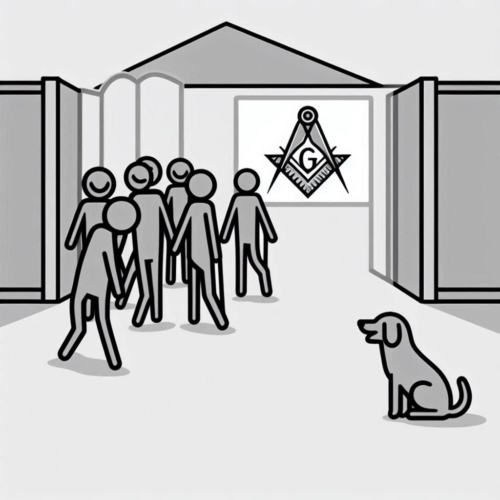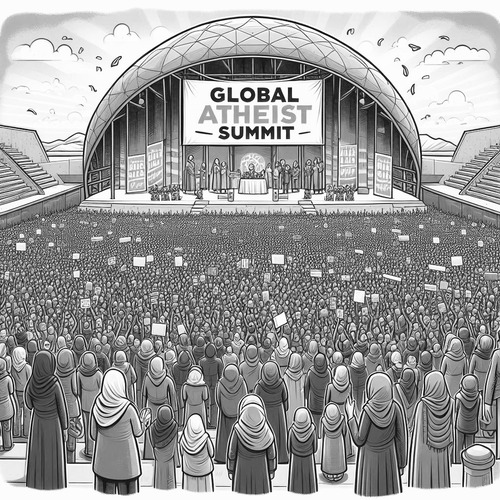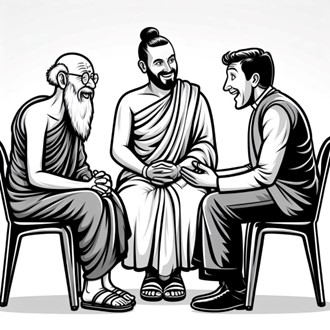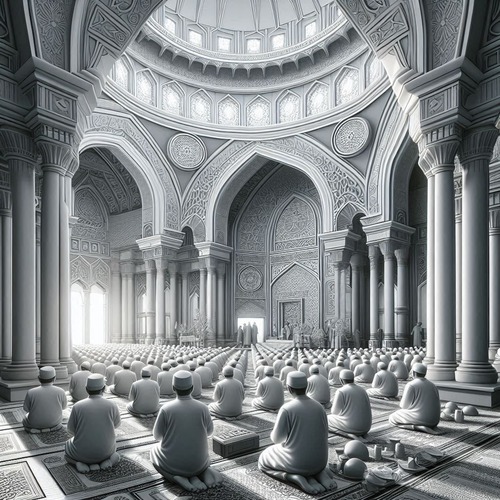Freemasonry’s Dark Secrets: A Biblical Analysis
The relationship between Freemasonry and Christianity represents more than just theological controversy—it raises profound spiritual concerns that demand careful examination. While Masonic organisations present themselves as compatible with Christian faith and emphasise their charitable works, both Reformed biblical analysis and troubling testimonies from former members reveal deep incompatibilities with authentic Christianity. This examination explores not only the theological contradictions but also the disturbing spiritual experiences reported by those who’ve left Masonry for biblical faith.
HISTORICAL CONTEXT
Freemasonry emerged in its modern form during the early 18th century, though its practitioners claim much earlier origins. Throughout history, Christian denominations have responded differently to Masonic involvement, ranging from tolerance to outright condemnation. Notable Reformed theologians and church leaders have consistently raised concerns about its compatibility with biblical Christianity.
TESTIMONIALS FROM FORMER FREEMASONS
Many former Freemasons who’ve converted to Christianity have shared deeply troubling spiritual experiences from their time in the lodge. Their testimonies often reveal patterns that warrant serious consideration from a biblical perspective.
- Ritualistic Elements: Former members frequently describe experiencing overwhelming spiritual oppression during certain Masonic rituals. Specific concerns include the blindfolded initiation ceremony, where many report sensing malevolent spiritual presence; the death and resurrection ritual of the Third Degree, which some describe as a counterfeit of Christian regeneration; and the drinking from a human skull in higher degrees, which former members identify as occult in nature.
- Spiritual Manifestations: Multiple testimonies describe supernatural manifestations during lodge meetings. These include: unexplainable cold spots in the lodge room during certain ceremonies; feelings of being watched or followed after participating in rituals; and reports of spiritual oppression affecting family members at home.
- Psychological and Spiritual Effects: Former members consistently report: progressive spiritual deadening and loss of Christian discernment; difficulty praying or reading Scripture after lodge meetings; unexplainable anxiety when attempting to attend church and a gradual pulling away from authentic Christian fellowship.
- Breaking Free: Those who left Freemasonry for Christianity describe: needing specific prayer for deliverance from spiritual bondage; experiencing spiritual warfare during the process of leaving, and finding freedom only through explicit repentance of involvement.
While each testimony is unique, the consistent patterns reported by former members from different times and places suggest these experiences aren’t merely psychological but indicate genuine spiritual concerns that align with biblical warnings about involving in non-Christian spiritual practices.
OTHER CORE THEOLOGICAL CONCERNS
The Nature of God: The Masonic concept of deity, often referred to as the “Great Architect of the Universe,” presents a fundamental conflict with biblical theology. While Freemasonry embraces a universal deity acceptable to all religions, Scripture reveals God as distinctly personal and Trinitarian. This universalist approach directly contradicts the biblical teaching that the one true God has revealed Himself specifically in Scripture and in the person of Jesus Christ.Ò
The Reformed understanding of God’s nature, based on His self-revelation in Scripture, cannot be reconciled with Masonic religious pluralism. This pluralistic approach effectively denies the uniqueness and exclusivity of the biblical God, compromising essential Christian doctrine.
Salvation and Justification: Masonic teaching emphasises moral self-improvement and personal development through ritualistic advancement. This stands in stark contrast to the biblical doctrine of salvation by grace alone through faith alone in Christ alone. The Reformed understanding of total depravity and the necessity of divine grace leaves no room for the works-based system inherent in Masonic degrees and advancement.
While Freemasonry promotes moral living and charitable works, its underlying soteriology contradicts the Reformed understanding of justification. The Bible clearly teaches that no amount of moral improvement or good works can contribute to salvation.
Scripture and Authority: The Masonic system includes various rituals, traditions, and teachings that claim to impart spiritual wisdom. This directly challenges the Reformed doctrine of Sola Scriptura—the belief that Scripture alone is the final authority for faith and practice. Masonic rituals and teachings function as an extra-biblical source of spiritual authority, undermining the sufficiency and supremacy of God’s Word.
The Person of Christ: Perhaps the most significant theological conflict concerns the person and work of Jesus Christ. While Freemasonry may acknowledge Jesus as a great teacher, it denies His exclusive claims as the only way to God. This religious syncretism contradicts Christ’s clear statement: “I am the way, the truth, and the life. No one comes to the Father except through me” (John 14:6).
SPECIFIC AREAS OF CONCERN
Oaths and Vows: The practice of taking Masonic oaths raises serious biblical concerns. These oaths often involve solemn promises made without full knowledge of their implications, and sometimes include concerning penalties. Scripture teaches us to let our yes be yes and our no be no, raising questions about the appropriateness of such secret oaths.
Temple Symbolism: Masonic use of temple imagery and ritualism presents another area of theological concern. While Masonry employs these symbols as tools for moral instruction, biblical teaching shows that temple imagery finds its fulfillment in Christ. The continuation of temple symbolism in Masonic ritual may inadvertently deny the sufficiency of Christ’s work.
Fellowship and Communion: The concept of Masonic brotherhood, while promoting admirable social bonds, can compete with biblical church fellowship. The Reformed understanding of church membership and Christian communion cannot be reconciled with the type of spiritual brotherhood promoted in Masonic lodges, especially given the inclusion of non-Christians in this fellowship.
COMMON ARGUMENTS AND RESPONSES
- “It’s Just a Social Club”: While Freemasonry does serve social functions, its ritualistic elements and spiritual teachings go far beyond mere social activity. The inclusion of religious elements and moral teaching makes it impossible to categorise it as merely a social organisation.
- “Many Christians Have Been Masons”: While true historically, this argument fails to address the fundamental theological incompatibilities. The participation of Christians in any activity doesn’t automatically validate it from a biblical perspective.
- “It Complements Christianity”: This claim overlooks the exclusive nature of biblical Christianity. The Reformed understanding of Scripture teaches true faith cannot be “complemented” by extra-biblical spiritual systems.
CONCLUSION: FREEMASONRY’S DARK SECRETS
The evidence examined presents a sobering picture of Freemasonry’s incompatibility with biblical Christianity. The theological contradictions aren’t merely academic—the lodge’s universalist deity, works-based philosophy, and alternative spiritual authority structure directly oppose fundamental Christian doctrines. More disturbingly, the consistent testimonies of former Freemasons point to genuine spiritual dangers beneath the surface of Masonic ritual and practice.
While Freemasonry promotes admirable moral principles and charitable works, these cannot offset its deeply problematic foundation. The Reformed emphasis on biblical authority, Christ’s exclusivity, and salvation by grace alone exposes the impossibility of reconciling Masonic teaching with Christian truth.
For those seeking truth about Freemasonry, both Scripture and the testimony of former members point to the same conclusion: despite its outward benevolence, it stands in fundamental opposition to biblical Christianity and poses real spiritual dangers to those who participate in its rituals and embrace its teachings.
FREEMASONRY’S DARK SECRETS—RELATED FAQs
If Freemasonry is spiritually dangerous, why do so many churches still allow Masonic members? Many churches have gradually lost their historical understanding of Freemasonry’s nature, treating it merely as a civic organisation. This memory loss, combined with social pressure and the lodge’s charitable reputation, has led to a weakening of church opposition. However, denominations that have conducted thorough theological studies of Freemasonry typically maintain strong positions against membership.
Why is Freemasonry’s view of Jesus Christ a significant theological conflict? Freemasonry’s view of Jesus as merely a great teacher denies His exclusive claims as the only way to God. This religious syncretism directly contradicts Christ’s clear statement: “I am the way, the truth, and the life. No one comes to the Father except through me” (John 14:6).
How does Freemasonry’s teaching affect a Christian’s understanding of gender and family roles? Masonry’s male-only structure and its alternative spiritual authority system often create divided loyalties in Christian families. The wife’s exclusion from her husband’s spiritual activities in the lodge directly contradicts the biblical model of spiritual unity in marriage. Additionally, the time commitments and secret-keeping required by lodge membership frequently strain family relationships.
What is the significance of Masonic symbols on church buildings and tombstones? The presence of Masonic symbols on Christian buildings and graves represents a historical compromise that many now regret. These symbols create confusion about the church’s spiritual identity and can give unintended legitimacy to Masonic beliefs. When possible, churches should consider respectfully removing such symbols while teaching about why this step aligns with biblical faithfulness.
How should Christians view Masonic charitable work in their communities? While Masonic charity does genuine good, it often serves as a public relations tool that makes theological criticism more difficult. Christians can appreciate the humanitarian benefits while still recognizing that good works don’t validate underlying spiritual teachings. Churches should consider how to provide alternative channels for community service that don’t require compromising biblical truth.
Why do some Masonic buildings incorporate Christian symbols if there’s a spiritual conflict? The use of Christian symbols in Masonry represents a deliberate strategy of religious syncretism, where Christian elements are reinterpreted within Masonic philosophy. This architectural and symbolic mixture often confuses Christians about the fundamental differences between biblical faith and Masonic teaching. The practice stems from Freemasonry’s historical development in Christian cultures while adapting Christian symbols for non-Christian purposes.
How should Christians respond to Masonic funeral services for church members? This sensitive situation requires both theological clarity and pastoral wisdom. Churches should have clear policies about Masonic rituals on church property while showing respect for grieving families. Where possible, pastoral leadership should lovingly help families understand why mixing Christian and Masonic ceremonies creates confusion about the gospel message.
FREEMASONRY’S DARK SECRETS—OUR RELATED POSTS
Editor's Pick

Paul’s Mandate for Men: Headship Or Servant Leadership? Or Both?
Modern Christianity has fallen into a trap. We've created an either/or battle between "headship" and "servant leadership," as if these [...]

Should We Stop Using Male Pronouns for God? Why Do We Say No?
A friend of ours arrived eagerly at his first theology class in seminary. But he quickly discovered something troubling: the [...]

Did Old Testament Law Force Women to Marry their Rapists?
**Editor’s Note: This post is part of our series, ‘Satan’s Lies: Common Deceptions in the Church Today’… Viral misinformation abounds [...]

From Danvers To Nashville: Two Statements, One Biblical Vision
30 years separate the Danvers Statement on Biblical Manhood and Womanhood (1987) and the Nashville Statement on Human Sexuality (2017). [...]

The Nashville Statement: Why Affirm It Despite Media Backlash?
WHY DO REFORMED CHRISTIANS STAND BY THIS STATEMENT ON MARRIAGE AND GENDER? When the Nashville Statement was released in 2017, [...]

Who Is Belial? Solving The 2 Corinthians 6:15 Mystery
Belial: This name from the pages of Scripture chills the soul. Who is this mysterious figure Paul invokes in 2 [...]

Celibacy Or Castration: What Jesus Really Means in Matthew 19:12
One of Scripture's most shocking misinterpretations led theologian Origen to castrate himself in the third century. His tragic mistake? Taking [...]

Philippians 4:13: Did Paul Really Mean We Can Do ALL Things?
"I can do all things through Christ who strengthens me." It's on gym walls, graduation cards, and motivational posters everywhere. [...]

The Ordinary Means of Grace: Why Are They Indispensable?
ORDINARY MEANS FOR EXTRAORDINARY TRANSFORMATION What if God's most powerful work in believers' lives happens through the most ordinary activities? [...]

Is the Bible God’s Word? Or Does It Only Contain God’s Word?
The authority of Scripture stands at the crossroads of modern Christianity. While some argue the Bible merely contains God’s Word [...]
SUPPORT US:
Feel the Holy Spirit's gentle nudge to partner with us?
Donate Online:
Account Name: TRUTHS TO DIE FOR FOUNDATION
Account Number: 10243565459
Bank IFSC: IDFB0043391
Bank Name: IDFC FIRST BANK






